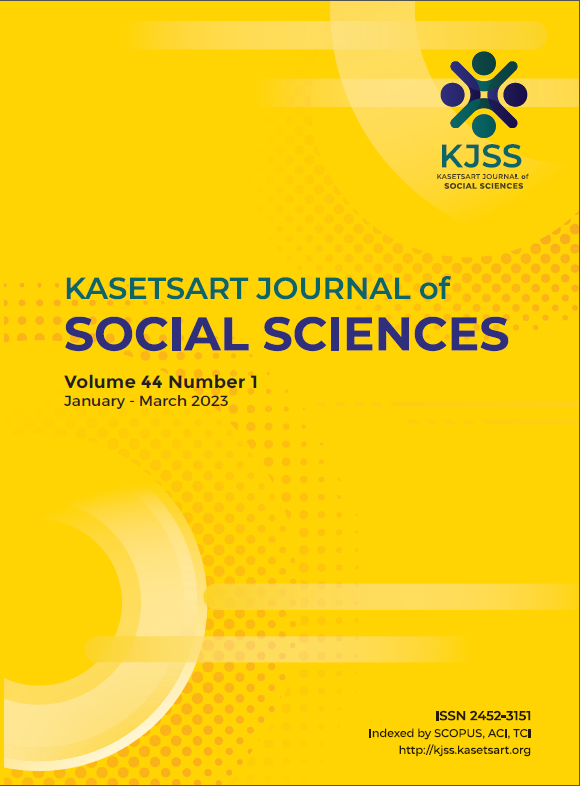/tan-hǎa/ or lust: A study of conceptual metaphors from a Thai perspective
Keywords:
cognitive semantics, conceptual metaphor, lust, metaphor, Thai perspectiveAbstract
The majority of Thai people are Buddhists and the religion serves as a kind of anchor of the Thai mind. Therefore, in daily communication, Buddhist vocabulary is often spoken or used in the teaching of morals. This research aimed to study the conceptual metaphors of “/tan-hǎa/” or “lust” from a Thai perspective and analyze Thai perspectives on lust. The 403 metaphor data were totally collected from the Thai National Corpus (Thai National Corpus [TNC], 2021) and analyzed based on the conceptual metaphor theory. Four conceptual metaphors of “/tan-hǎa/” or “lust”: [LUST IS HUMAN], [LUST IS FIRE], [LUST IS AN OBJECT], and [LUST IS A DEVIL/DEMON] were found. These metaphors reflect the Thai perspective that lust is something that must be eliminated from the human mind because it causes suffering.
Downloads
Published
How to Cite
Issue
Section
License

This work is licensed under a Creative Commons Attribution-NonCommercial-NoDerivatives 4.0 International License.
This is an open access article under the CC BY-NC-ND license http://creativecommons.org/licenses/by-nc-nd/4.0/










